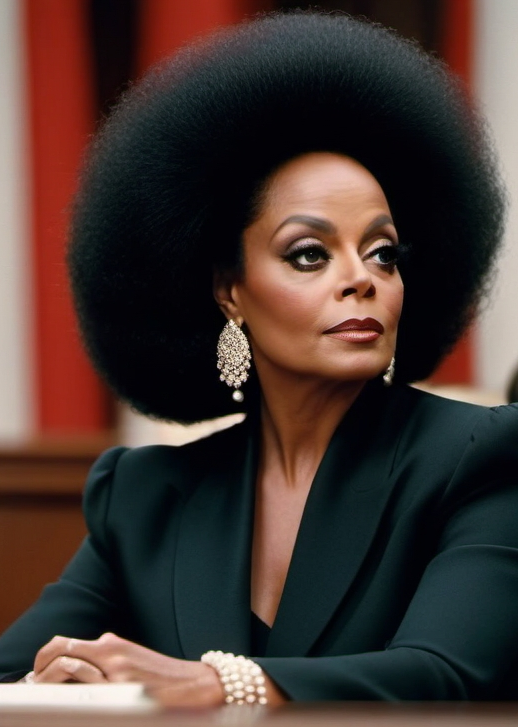
Chief Justice Diana Ross
Ottawa – A spelling mistake causes the reinvention of the Supreme Court. All nine Justices of the Supreme Court of Canada have resigned, fulfilling a ruling that the Court itself handed down late last year.
Old Court Had Until Noon to Resign
Their reinterpretation of the Constitution meant that the Justices had until noon today to resign from their seats. In their place, after what most legal experts are calling a bizarre and reckless decision, the Court is now occupied by the 1960s and 70s Motown group, The Supremes, reducing its number to three, and naming the enigmatic and often turbulent Diana Ross as Chief Justice.
All Laws Up for Review
Following a lavish ceremony at Rideau Hall that featured several of the music industry’s top recording artists, newly-installed Chief Justice Ross said that, “any and all laws in Canada are now open for review and reinterpretation.” She further clarified that the court started their review several months ago, when it became clear that the former Justices would indeed step down. Their first reviews, she said, will set the new rules for the most violent crimes, and released the first one mere minutes after the new judges took their oaths. The review encompasses several Criminal Code entries related to homicide, specifically regicide.
Court Warns King Charles Against Bruce Trip
Associate Justice Cindy Birdsong noted that, while regicide will remain illegal in Canada, the Court’s reach no longer extends to the Bruce Peninsula Autonomous Region, and warned King Charles that the laws of Canada cannot protect him if he plans on proceeding with his visit to Flower Pot Island later this week. Speaking from London prior to departing for Canada, the King said, “We thank the Court for their concern, but we will visit wherever we have been invited and will look forward to seeing the people of the Bruce in just a few days.”
Spelling Mistake Causes Reinvention of Supreme Court
The Supreme Court of Canada did not become the final court of appeal for civil cases until 1949, when the Judicial Committee of King George VI’s Privy Council ceded that authority to Ottawa. In the transfer-of-power documents, buried deep within the legalese, is the source of the current issue. Section 69, subsection 420 states, “This Privy Council does hereby transfer all authority of civil appeal to The Supremes Court of Canada” – a simple spelling mistake that had gone unnoticed for decades until a sharp-eyed Constitutional scholar, Randall Benders, brought the oversight up in an opinion piece published in the Toronto Star in 2017.
US High Court Intervenes
The disruptive legal team of Pennywhistle, Rosenthal, and Cornbread decided that Benders had a point, and argued before the Court that the matter deserved resolving. The Court agreed, and set to hearing arguments about how best to make that happen. Given intervener status, the Supreme Court of the United States argued that Constitutional writers are almost always literalists, and that their wishes should be granted, or the entire Constitutional document should simply be scrapped and started anew.
Predicting the Future
Government lawyers countered that the Privy Council would not have known about The Supremes in 1949, as the band was not formed until 1961 in Detroit. The US High Court persisted, noting that future-seeing and prognostication remain murky sciences, and that their existence should not be dismissed. Then, to the shock of even the most casual observers, and by unanimous vote, the former panelists signed their own pink slips, agreeing that the Privy Council in London almost certainly meant to appoint several foreign nationals as the body of final appeal for the law in Canada, even if their identities would not be known for another twelve years.
See also: A Heartfelt Love Letter to a Sentient Toaster; PGNIP.ca



